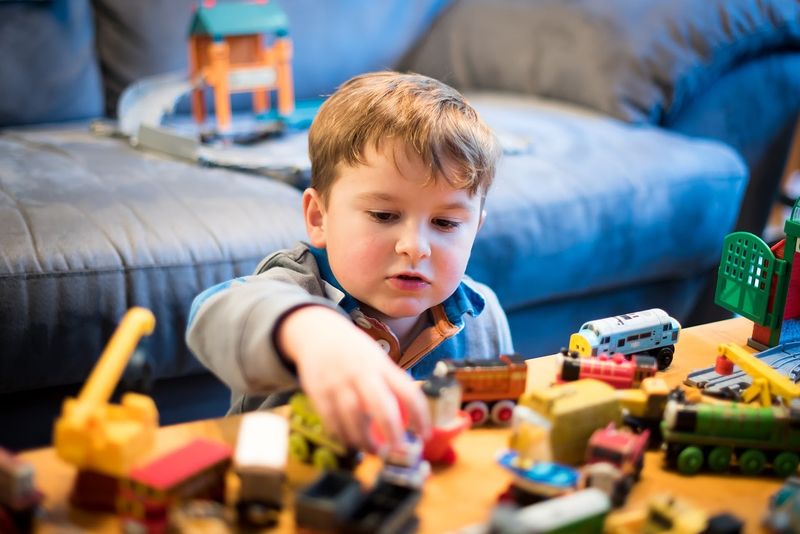Parenting is an intricate balance of nurturing, discipline, and guidance, all aimed at preparing children for adulthood. While every parent strives to raise successful adults, certain ‘red flags’ or counterintuitive indicators might actually predict positive outcomes in a child’s future. These are often behaviors or traits that, at first glance, might be seen as challenges, but they can foster resilience, independence, and empathy in the long run. Understanding these hidden gems allows parents to embrace the unpredictable path of parenting, recognizing the potential in behaviors that are easily misunderstood. Here are nine such ‘red flags’ that could predict success.
1. Stubbornness as a Strength

Stubbornness in children might frustrate parents, but it often signals a strong will and determination. This trait, when guided positively, can lead to persistence in achieving goals.
Encouraging a stubborn child to channel their determination towards constructive activities can cultivate a responsible adult who doesn’t easily give up in the face of adversity.
Their ability to stand their ground can be refined into a leadership quality, enabling them to navigate complex situations with confidence and insight.
2. Curiosity That Knows No Bounds

Curiosity in children is a powerful predictor of lifelong learning and success. A child who constantly asks ‘why’ is developing critical thinking skills and a thirst for knowledge.
This inquisitive nature, though tiring for parents, can lead to innovative thinking and problem-solving abilities.
Fostering such curiosity involves providing them with opportunities to explore and question the world around them, laying a foundation for intellectual growth and adaptability.
3. Independence in Play

A child who enjoys playing alone demonstrates independence, a crucial skill for future success. This ability to entertain themselves indicates resourcefulness and creativity.
While social play is important, solitary play allows children to explore their imagination and craft solutions without external influence.
Supporting this behavior by providing diverse materials for play can help develop problem-solving skills and self-reliance.
4. Questioning Authority

Children who question authority may seem rebellious but are often exercising critical thinking. This trait, when nurtured, can lead to the development of strong, independent thinkers.
Encouraging respectful questioning helps children learn to evaluate information critically and form their own opinions.
This skill is essential in a world where information is abundant and discerning fact from fiction is vital.
5. Sensitivity and Empathy

Sensitive children often grow up to be empathetic adults, capable of understanding and relating to others’ emotions. This emotional intelligence is a key factor in personal and professional success.
Although sensitivity can be challenging, it fosters deep connections and communication skills.
By teaching children to manage their emotions and empathize with others, we prepare them for collaborative and compassionate interactions throughout their lives.
6. Perfectionism with Purpose

Perfectionism in children can lead to high standards and attention to detail. While it can sometimes cause stress, it often results in exceptional work quality.
Guiding perfectionistic tendencies towards achievable goals rather than unattainable ideals can prevent burnout and encourage diligence.
This balance can cultivate a disciplined approach to tasks and a strong work ethic, essential traits for future success.
7. Imagination Taking Flight

Imagination is a gateway to creativity and innovation. Children who often daydream or invent stories are honing their creative thinking abilities.
While it might seem like a distraction, this imaginative play is crucial for developing problem-solving skills and inventive thinking.
Encouraging creativity through art, storytelling, and play helps children learn to think outside the box, a valuable skill in any career.
8. Resilience in the Face of Failure

Resilience is the ability to bounce back from failure, a critical skill for success. Children who persist despite setbacks learn adaptability and perseverance.
Experiencing and overcoming failure teaches valuable life lessons, building confidence and determination.
Supporting children through failures by encouraging a growth mindset helps them view challenges as opportunities for learning and development.
9. Strong-Willed Negotiator

A child who negotiates skillfully may seem demanding but is learning vital communication and persuasion skills. These abilities are essential in personal and professional interactions.
Teaching children to negotiate respectfully fosters confidence and the ability to understand different perspectives.
Such skills are invaluable for conflict resolution and collaboration, setting the stage for success in their adult lives.

Well, hello there!
My name is Jennifer. Besides being an orthodontist, I am a mother to 3 playful boys. In this motherhood journey, I can say I will never know everything. That’s why I always strive to read a lot, and that’s why I started writing about all the smithereens I came across so that you can have everything in one place! Enjoy and stay positive; you’ve got this!

